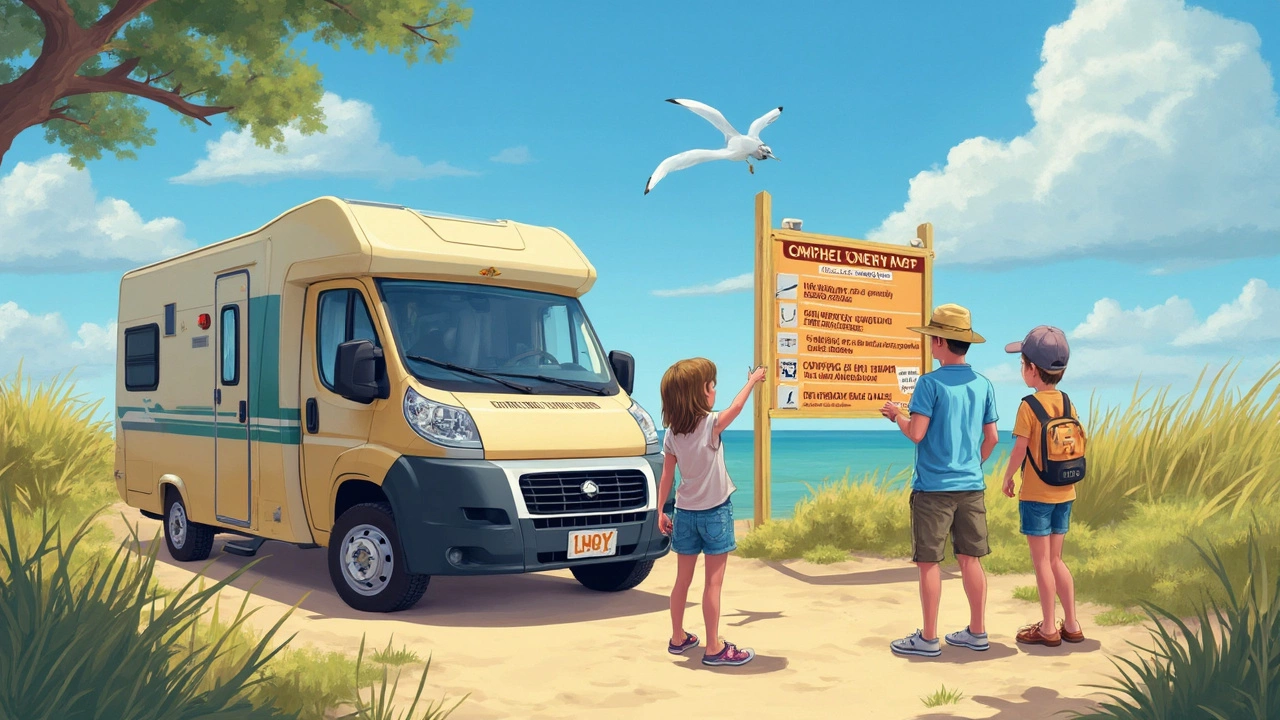Overnight Stay Tips for Motorhome Adventurers
Finding a safe place to park your motorhome for the night can feel like a puzzle, but it doesn’t have to be. Whether you’re chasing a sunrise on the coast or just need a quiet spot after a long day of driving, a few simple rules can turn a stressful hunt into a smooth part of your journey.
Know the Law Before You Park
First thing’s first: check local rules. In England, wild camping is legal in Scotland but restricted in most of the rest of the UK. That means you’ll often need a designated campsite, a service station, or a farmer’s field with permission. In the US, rules vary by state and even by city. Some Walmart parking lots allow overnight stays, while others ban them. A quick Google search for “overnight parking + [city]” will usually give you the answer.
When you’re not sure, look for signs. A no‑stopping sign means you’re not allowed to stay, even for a few hours. If you see a blue badge or a sign that says “motorhome parking,” you’re good to go. When in doubt, ask the manager or the landowner – most people are happy to help if you’re polite.
Pick the Right Spot for Comfort and Safety
Location matters. A well‑lit area near a shop or a 24‑hour service station gives you easy access to water, waste disposal, and a place to buy supplies. It also feels safer because other people are around. If you prefer a quieter setting, look for a small caravan park or a farmside pitch that lets you stay a night or two.
Think about the ground. Flat, level ground makes it easier to set up your slide‑out and stay comfortable. Avoid low‑lying spots that could collect rainwater. A gentle slope can help with drainage, but too steep and you’ll have trouble with your stabilisers.
Don’t forget the essentials: plug points, fresh water, emptying stations, and waste disposal. Many motorhome apps list these facilities, so a quick check on your phone can save you a lot of hassle later.
Once you’ve found a spot, set up quickly. Plug in the power, connect to fresh water, and turn on the heater or fan as needed. Keep your doors closed at night to lock out insects and keep the interior temperature stable. If you’re using a tarp or a “camping triangle” for extra shelter, make sure it’s taut and securely pegged.
Safety tips: lock your doors, store valuables out of sight, and keep a flashlight within reach. A quick walk around the perimeter before you settle in helps you spot any potential hazards, like low hanging branches or uneven ground.
Finally, be a good neighbour. Keep noise down after 10 pm, leave the area clean, and follow any site rules. A little respect goes a long way, and you’ll likely be welcomed back to the same spot on future trips.
With these basics in mind, overnight stays become a natural part of the adventure rather than a chore. Check the rules, choose a safe spot, set up smartly, and you’ll wake up ready for the road ahead.
-
 VIEW POST
VIEW POSTTybee Island Camping: Are Tents and RVs Welcome?
Jun, 19 2025|0 CommentsThinking about camping on Tybee Island? Here’s what you need to know before pitching a tent or pulling up in your RV. Tybee isn’t like every other coastal spot—local rules are strict, and some surprises catch visitors off guard. Discover your options, from nearby campgrounds to clever alternatives. Learn a few tips that could save your trip.